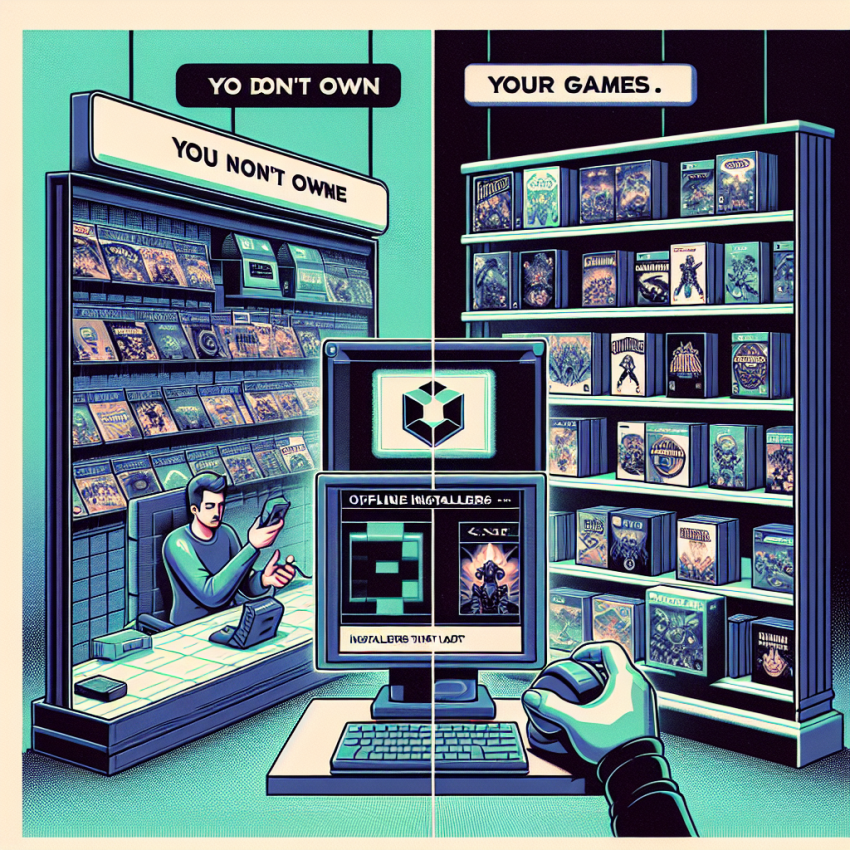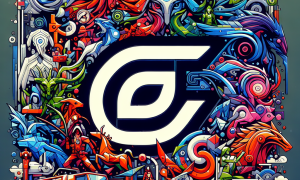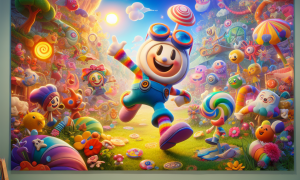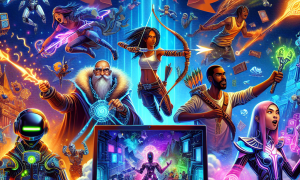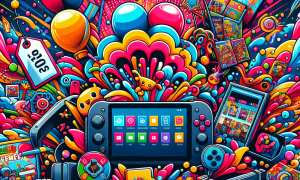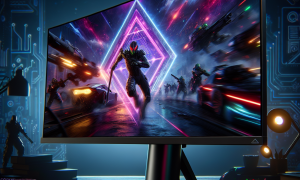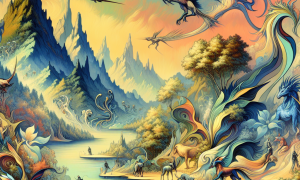Steam’s New Disclaimer vs. GOG’s Commitment to Game Ownership
In an era where digital content consumption is at an all-time high, the notion of ownership in the gaming industry has come under increased scrutiny. Steam, one of the largest digital distribution platforms for PC gaming, has introduced a new disclaimer that bluntly reminds users that they don’t actually “own” their games. In contrast, GOG (Good Old Games), a platform known for its commitment to DRM-free gaming, has taken the opportunity to highlight its philosophy of genuine ownership. This article dives into the implications of Steam’s disclaimer and how GOG is positioning itself as the beacon for gamers seeking true ownership of their digital libraries.
Understanding Steam’s New Disclaimer
Recently, Steam updated its Terms of Service, adding a catchy disclaimer as part of its effort to inform users about their rights. The crux of the message? You may buy games on Steam, but you don’t own them in a traditional sense. This can be summarized in the following key points:
For many gamers, this will not come as a shock, as the concept of digital licenses over ownership has been a topic of controversy for years. The popularity of digital games means that players are accustomed to a new reality where ownership is a fluid concept, often decided by the terms dictated by distribution platforms like Steam.
However, the disclaimer serves as a stark reminder of the lack of control gamers have over their purchases. Unexpected service termination or account bans could lead to a situation where a player loses access to libraries that they invested money in. This creates a sense of unease among users who rely heavily on the platform for their gaming experiences.
GOG’s Counterargument: Emphasizing True Ownership
In a market increasingly dominated by digital distribution, GOG has established itself as a stronghold for players who value ownership. GOG presents a powerful contrast to Steam’s model by promoting DRM-free games. Here’s what sets GOG apart:
By providing offline installers, GOG ensures that gamers can maintain their libraries even in the face of server outages or platform shutdowns. This feature acknowledges the tangible desire for ownership that many players feel, fostering loyalty among users who resonate with this ethos.
The counter-narrative put forth by GOG sheds light on the fundamental difference in philosophies between the two platforms. While Steam operates on a model of temporary access governed by contracts, GOG champions a more consumer-friendly approach — allowing players to download and play their games without invasive stipulations.
Implications for Gamers
Steam’s recent disclosure is likely to spark discussions among the gaming community regarding digital ownership. As more players become aware of these twinned truths, they may start to reconsider where they purchase their games. Here are a few implications for gamers in light of these developments:
1. Awareness and Informed Choices
Gamers must make informed decisions about where to buy their games. Understanding the terms of service, restrictions placed by platforms like Steam, and the benefits of DRM-free alternatives like GOG can influence purchasing behavior. Increased awareness may lead to shifts in consumer habits, as more players express preferences for platforms that respect their ownership rights.
2. Community Reactions and Movements
The community response to Steam’s disclaimer could galvanize movements advocating for transparent ownership rights in the gaming industry. Gamers could unite in seeking policy changes that promote fairer treatment of digital purchases. This could affect how future platforms design their services and how publishers approach digital releases.
3. The Future of Game Distribution
The controversy surrounding digital ownership might lead new competitors to emerge, offering alternatives that respect consumer rights. As players become disillusioned with restrictive terms, there may be an uptick in demand for more inclusive gaming services. This evolution could push the industry toward a model that prioritizes user autonomy and ownership at its core.
Steam and GOG: A Complicated Relationship
Despite the differences in their approaches, Steam and GOG are both integral to the gaming ecosystem. Each platform serves different niches within the gaming community:
Steam: Convenience and Community
Steam excels in delivering an extensive library of games, occasional sales, and community features like forums and user-generated content. For many, the convenience of having instant access to a wide array of titles outweighs the concerns about ownership.
GOG: Nostalgia and Value
On the other hand, GOG appeals particularly to gamers seeking nostalgic experiences with classic titles and those who prioritize genuine ownership. The platform captures a certain slice of the gaming audience, one that values games as long-term investments rather than fleeting rentals.
The interplay between these two major players in the market could lead to a broader discussion on what future gaming should look like. The competition between them might not just affect sales but also consumer expectations regarding digital rights and ownership.
Conclusion: The Path Forward
As the gaming industry evolves, discussions concerning digital ownership will only continue to grow in importance. Steam’s new disclaimer serves as a wake-up call, prompting gamers to reevaluate their choices in a landscape that increasingly blurs the lines between ownership and licensing. In contrast, GOG stands firm in its commitment to providing true ownership of games.
Gamers are at a crossroads — as they navigate through platforms offering varying philosophies on digital ownership, it’s essential to prioritize personal values in those choices. At the end of the day, the freedom to play and access games should align with the notion of ownership, ensuring that players truly feel in control of their gaming libraries for years to come.
Citation: Steam’s new disclaimer reminds everyone that you don’t actually own your games, GOG moves in for the killshot: Its offline installers ‘cannot be taken away from you’ written by Andy Chalk
